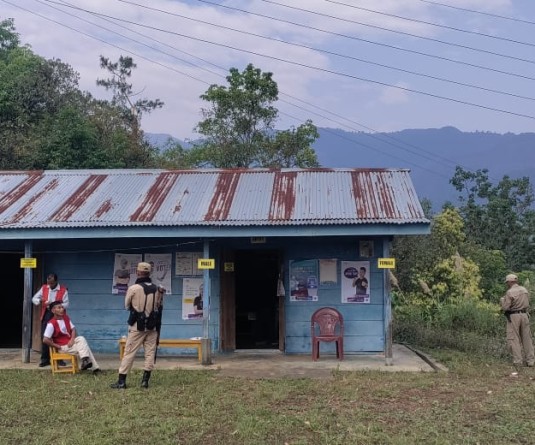
New Delhi, September 13 (IANS): Prime Minister Manmohan Singh Tuesday called for “integrated action” in Maoist areas towards “sustainable development for all”, also stressing on learning from the grassroot level for success of the programmes.
“Development, to be meaningful, has to be in tune with the people’s felt needs and requirements and their perceptions of what constitutes good development has to be integrated into all processes of development,” the prime minister said, addressing 60 district collectors of Maoist affected areas.
Mentioning the role of S.K. Dey, minister for community development in the cabinet of Jawaharlal Nehru, Manmohan Singh said: “Sometimes I feel we have to go back to that holistic approach to the development of our rural areas.”
The prime minister said people’s representatives as well as the officials, who are administering the schemes at the grassroot level, must have the maximum degree of freedom to make changes in schemes which “may appear very sound from a distance but at the ground level they run into problems”.
“I think the challenge before the Planning Commission, the rural development ministry and the Panchayati Raj ministry is to bring about this synthesis. Learning from the grassroot has to be the keynote of our development planning for the 12th Five Year Plan,” he said. Stating the Integrated Action Plan (IAP) is aimed at bridging the “development deficit” in the extremely backward areas affected by left-wing extremism, the prime minister said: “Lack of security is a big constraint.”
“Maybe we should experiment with the use of police stations - the ground floor can be the police station, the first floor can be the bank and similar other activities can be located at places where security can be provided for those who deal with the cash component of various programmes,” he suggested.
Observing that lack of development “often leads to a sense of alienation among the inhabitants of these areas”, the prime minister said: “If the sense of alienation is to be converted into a sense of belongingness, our programmes and policies must ensure that the people of these areas have equitable share in the prosperity that a rapidly growing economy like ours is bound to bring in.” Terming Panchayati Raj a genuine instrument of transforming the lives of the people living in Maoist areas, he said: “The pre-requisite for any intervention to be successful is that people own the programme meant for them and are involved in the planning as well as in the implementation process.”
He cited the example of Ramakrishna Mission in Narayanpur (Chhattisgarh), which has been awarded the Indira Gandhi Award for National Integration and innumerable other recognitions. “The work of this mission in the extremely backward areas of Narayanpur amidst the Pahadi Madia tribes is exemplary and we must draw inspiration from their selfless work,” said Manmohan Singh.
“Development, to be meaningful, has to be in tune with the people’s felt needs and requirements and their perceptions of what constitutes good development has to be integrated into all processes of development,” the prime minister said, addressing 60 district collectors of Maoist affected areas.
Mentioning the role of S.K. Dey, minister for community development in the cabinet of Jawaharlal Nehru, Manmohan Singh said: “Sometimes I feel we have to go back to that holistic approach to the development of our rural areas.”
The prime minister said people’s representatives as well as the officials, who are administering the schemes at the grassroot level, must have the maximum degree of freedom to make changes in schemes which “may appear very sound from a distance but at the ground level they run into problems”.
“I think the challenge before the Planning Commission, the rural development ministry and the Panchayati Raj ministry is to bring about this synthesis. Learning from the grassroot has to be the keynote of our development planning for the 12th Five Year Plan,” he said. Stating the Integrated Action Plan (IAP) is aimed at bridging the “development deficit” in the extremely backward areas affected by left-wing extremism, the prime minister said: “Lack of security is a big constraint.”
“Maybe we should experiment with the use of police stations - the ground floor can be the police station, the first floor can be the bank and similar other activities can be located at places where security can be provided for those who deal with the cash component of various programmes,” he suggested.
Observing that lack of development “often leads to a sense of alienation among the inhabitants of these areas”, the prime minister said: “If the sense of alienation is to be converted into a sense of belongingness, our programmes and policies must ensure that the people of these areas have equitable share in the prosperity that a rapidly growing economy like ours is bound to bring in.” Terming Panchayati Raj a genuine instrument of transforming the lives of the people living in Maoist areas, he said: “The pre-requisite for any intervention to be successful is that people own the programme meant for them and are involved in the planning as well as in the implementation process.”
He cited the example of Ramakrishna Mission in Narayanpur (Chhattisgarh), which has been awarded the Indira Gandhi Award for National Integration and innumerable other recognitions. “The work of this mission in the extremely backward areas of Narayanpur amidst the Pahadi Madia tribes is exemplary and we must draw inspiration from their selfless work,” said Manmohan Singh.




